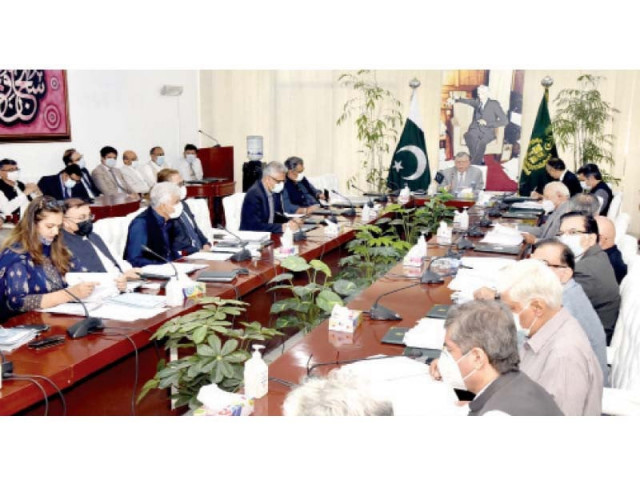CCP ruling on sugar industry: the second opinion
ECC’s role in granting permissions for import, export of sugar should be discontinued

Adam Smith noted centuries ago, “People of the same trade seldom meet together, even for merriment and diversion, but the conversation ends in a conspiracy against the public, or in some contrivance to raise prices.”
He was probably right here and may have rightly predicted the tendency of business associations towards collusive practices.
This is the main message of the ruling of the Competition Commission of Pakistan (CCP) in the case of Pakistan Sugar Mills Association (PSMA) and its members, finding them guilty of collusive practices and imposing the biggest-ever fine of Rs44 billion.
The CCP has found that the PSMA has deliberately facilitated the formation of a cartel on behalf of its members, which has resulted in welfare loss.
The CCP has also found that real-time stock tallying by the firms was carried out to manipulate the availability of sugar in the market, influence export decision and thus influence pricing.
The CCP has classified the stock sharing as “commercially sensitive information” and has almost entirely relied on this assertion for reaching the conclusion.
A rare event in this case is that the commission, comprising four members, was split into half and the chairperson cast her second vote to endorse the decision. While this legal point will be challenged, we need to understand the economics of it.
The authors of the “second opinion” have differed with the judgement on Issue I (sharing of sensitive commercial stock information), Issue II (collective decision to export), Issue III (effect of collective decision of export on price), Issue IV (zonal divisions in Punjab to coordinate sales) and Issue V (collective bargaining practice in USC tenders).
It will be instructive to read the “second opinion” – as published on pages 135-173 of the 186-page decision that the CCP has issued. These pages contain a deep analysis of the sugar market dynamics in Pakistan as well as some legal arguments leading to dissent.
The dissenting members of the commission found that the allegation of market manipulation against PSMA needed further analysis.
Concurring with this, the sugar industry being a heavily regulated sector is a peculiar case where rent-seeking on the one hand by the firms and excessive intervention by the government on the other hand have resulted in the “worst of both worlds”.
Consumers get expensive sugar whereas farmers and industrial units remain inefficient. The net winner may be the government which reaps more revenue in the form of taxes than the profit earned by the firms.
Here is my theory. The CCP is unanimous that no single firm is in a dominant position to influence the market, however, collectively they do.
What is the one factor which brings these competing firms to become one voice? It is the collective formed by the Sugar Advisory Board, cane commissioners and the Economic Coordination Committee (ECC).
By actively deciding the input price, time of harvest, time of crushing and controlling import and export, these collectivist institutions create a uniform condition for market players, kill competition and encourage them to form a cartel.
In the instant case, by constantly asking the PSMA and sugar mills to provide their stock data, the government has effectively made price levels insensitive to the stock position. As noted in the second opinion, the supply and demand forces are no more at work.
Which laws can be used to indict the government for encouraging the collusive behaviour?
Unfortunately, the Competition Act 2010 bars the CCP from indicting the government itself if it is found guilty. That is why we see that the CCP seems to be overly concerned with price control, which is not its mandate.
It has recommended the government to make efforts to collect information about stocks independently. Instead, it should have recommended the government to exit this sector.
The moment the government exits, the sugar firms will lose the platform where they can directly negotiate commercial decisions with the government. They will continue, perhaps, their own “merriment and diversion”. Let them be.
The government should allow free market forces to play their role. If domestic players collectively decide to raise the price, a competitive trader, while pursuing self-interest, will import sugar, thus keeping prices in check.
If prices go up in the international market, local producers will be free to sell in the external market. The increased price of sugar will finally dictate the consumer behaviour. But we have killed this cycle of free competition in the name of welfare.
This goes beyond the CCP but the role of ECC in granting permissions for import or export of sugar should be discontinued.
All archaic laws (the Sugarcane Act 1934, Sugar Product Control Order 1948, Sugar Factories Control Act 1950 and Control on Industries Establishment & Enlargement Ordinance 1963) along with concomitant institutions need to be phased out and abolished.
The CCP decision may be received positively by the public and the government, as it confirms the “mafia” image of sugar industry.
But it falls short of understanding a centrally controlled market, where supply and demand are irrelevant. Without understanding the market, the law itself cannot prevail.
The writer is the founder and executive director of PRIME, an independent think tank based in Islamabad
Published in The Express Tribune, August 30th, 2021.
Like Business on Facebook, follow @TribuneBiz on Twitter to stay informed and join in the conversation.



















COMMENTS
Comments are moderated and generally will be posted if they are on-topic and not abusive.
For more information, please see our Comments FAQ